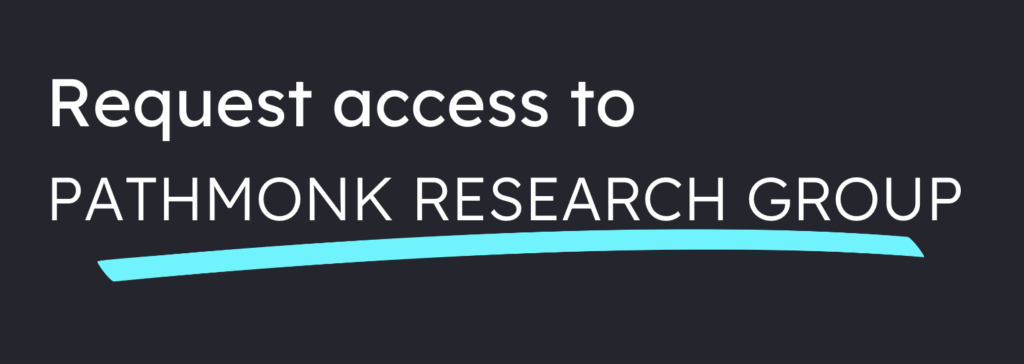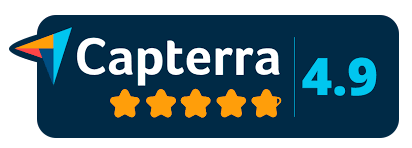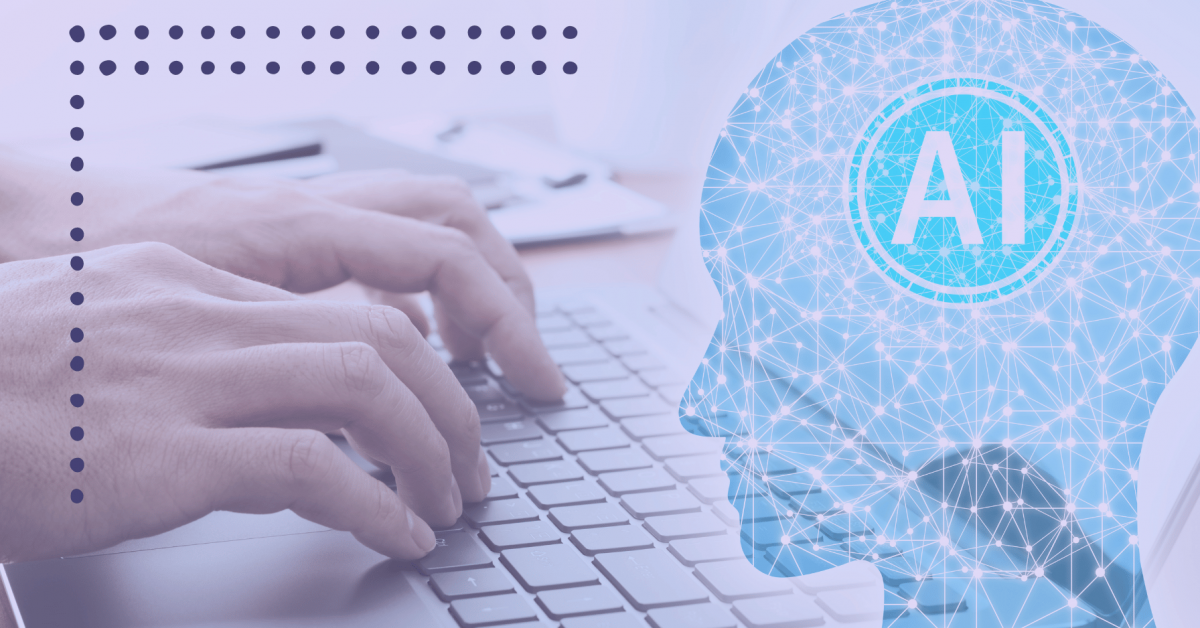
Artificial Intelligence Applied to Marketing
From expanding technologies to fierce competition to targeting audiences spanning the globe to the complexities of data and the digital environment, marketing has become more complex than ever before. Marketers need new and innovative ways to extract valuable insights and make informed decisions. And as the world shifts to artificial intelligence to revolutionize, well pretty much every activity and process we can think of, it’s no wonder AI marketing marks the beginning of a new age.
AI Marketing is the application of artificial intelligence technologies to marketing processes, such as data analysis, customer segmentation, and personalization. It enables marketers to gain a deeper understanding of their customers and target them with personalized content and offers, resulting in increased efficiency and effectiveness.
Increase +180%
leads
demos
sales
bookings
from your website with AI
Get more results from your existing website traffic delivering personalized experiences at every stage of your customer journey.
AI Marketing Through the Ages: A Quick Look at its History
Although it would seem that 2023 is the year in which Artificial Intelligence and its many applications have officially exploded, AI has in fact been used in marketing for many years. Its developments have been fascinating to witness. So before starting to fully embrace it, let’s understand its history.
In the early days of AI marketing, back in the 1980s and 1990s, rule-based systems were the norm. These systems used a set of predefined rules to determine which customers should receive which messages, based on demographic data such as age, gender, and location. While these systems were an improvement over traditional marketing methods, they were limited in their ability to personalize messages and deliver targeted content.
As computing power increased and more data became available, AI began to evolve beyond rule-based systems. In the 1990s, data mining emerged as a new way to extract insights from large data sets. Marketers could use data mining to identify patterns and trends in customer behavior, which could then be used to personalize messages and improve targeting.
The rise of the internet and social media in the early 2000s brought about a new era of AI marketing. Marketers now had access to vast amounts of customer data, including browsing behavior, social media activity, and purchase history. This data could be used to develop more sophisticated machine learning algorithms, which could automatically analyze customer behavior and deliver personalized messages in real time.
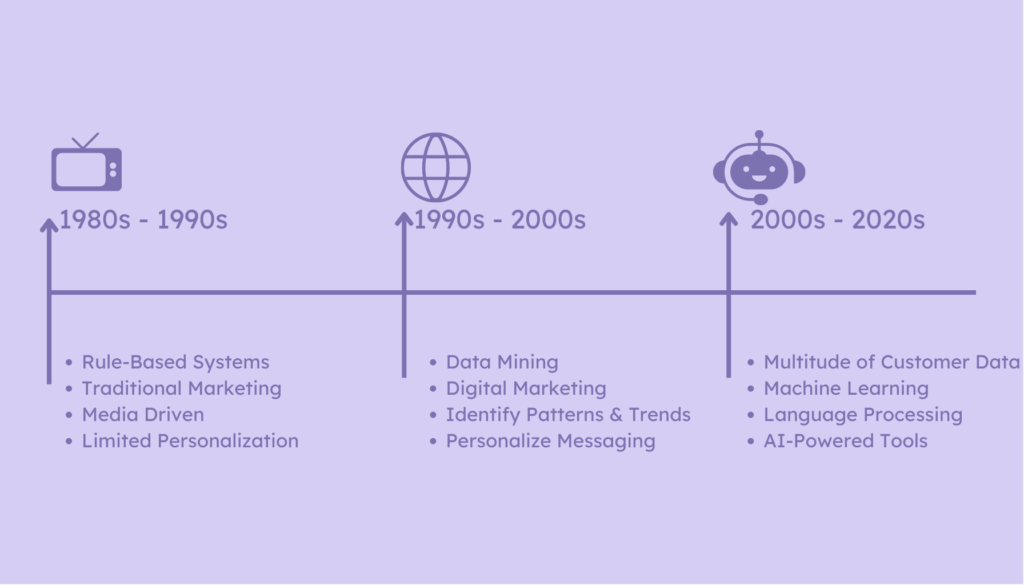
One of the earliest examples of machine learning in marketing was Amazon’s recommendation system, which used customer browsing and purchase history to suggest related products. This system was groundbreaking in its ability to personalize content and improve the customer experience, and it set the standard for AI marketing going forward.
As machine learning became more advanced, marketers began to experiment with more complex AI technologies, such as natural language processing and computer vision. These technologies enabled marketers to analyze customer sentiment, identify trends in visual content, and even create personalized video ads on the fly.
One of the most recent advancements in AI marketing is the use of chatbots, virtual assistants, and dynamic content generators based on user intent. These AI-powered tools can answer customer questions, provide product recommendations, influence prospects, and even complete transactions, all without human intervention. This technology has transformed the way that marketers engage with their customers, enabling them to provide hyper-personalized, real-time service at scale.
The Benefits of Artificial Intelligence Applied to Marketing
Clearly, Artificial intelligence is transforming the way we think about marketing. From customer segmentation to personalized recommendations, AI is helping marketers make better, data-driven decisions that lead to increased efficiency, better ROI, and improved customer experiences. But how exactly?
1. Enhanced Efficiency
One of the biggest benefits of AI in marketing is enhanced efficiency. With the ability to analyze vast amounts of data in real time, AI tools can help marketers identify patterns and insights that would be difficult, if not impossible, to detect manually. For example, AI can help automate time-consuming tasks such as data cleaning and analysis, freeing up marketers to focus on more strategic activities. By automating repetitive, data-driven tasks, marketers can be more efficient and productive, allowing them to create better campaigns, faster.
Today you can leverage tools like Pathmonk Intelligence that help marketers automatically and quickly conduct large-scale data analysis and provide them with money-making insights based on the way visitors behave on their website.
2. Improved Targeting
AI can also help improve targeting, ensuring that the right message is delivered to the right audience at the right time. By analyzing customer data such as browsing history, purchase behavior, and demographic information, AI tools can help marketers segment their audiences and deliver personalized messages that resonate with individual customers. For example, AI algorithms can help identify which products or services a customer is most likely to be interested in based on their browsing history and purchase behavior. This enables marketers to deliver more relevant, personalized messages that are more likely to drive engagement and conversions.
3. Hyper-Personalization
Personalization is becoming increasingly important in marketing, as customers expect more relevant and personalized experiences. AI is helping marketers meet this demand by enabling them to deliver incredibly personalized messages at scale. By analyzing customer data, AI tools can help marketers create personalized campaigns that are tailored to each individual customer. For example, AI can help marketers personalize emails, social media ads, and even website content, ensuring that each customer receives a tailored experience that speaks directly to their needs and interests. For personalization to be truly contextual and personal we need predictive tools powered by AI.
Tools, like Pathmonk Accelerate, are quickly becoming the gold standard for marketers embracing AI. This tool predicts exactly what your customers need. Pathmonk detects the intent-rich moments that shape the visitor’s decision on whether to stay, sign up or leave the website. With Pathmonk’s intelligence consumers are provided with informative and actionable content in key-purchasing moments.
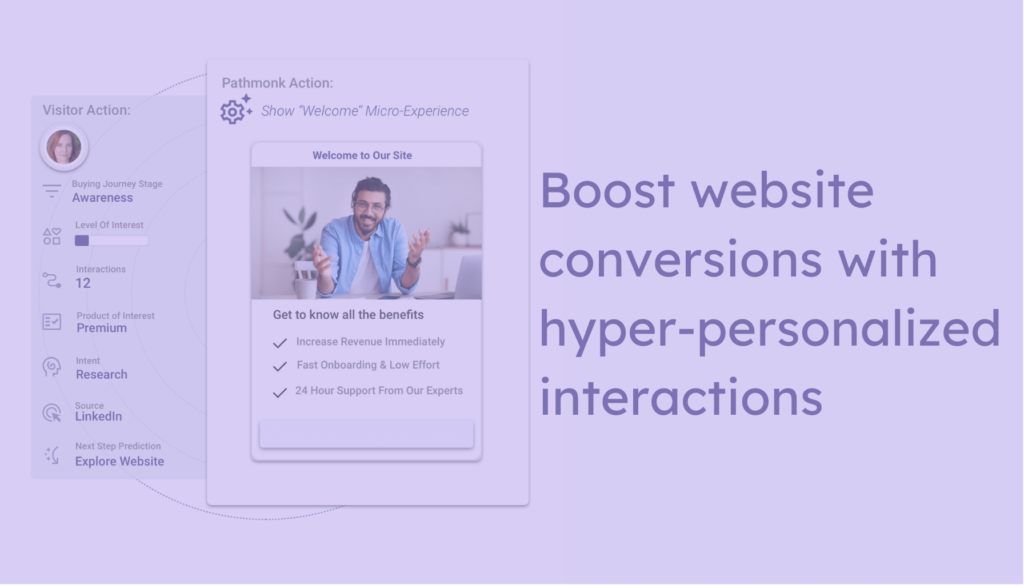
4. Improved Customer Experience
Customer experience is another area where AI is having a significant impact. By using AI to analyze customer data, marketers can gain insights into customer behavior, preferences, and needs. This allows them to create more targeted, personalized experiences that are more likely to resonate with customers. For example, AI can help retailers recommend products based on a customer’s previous purchase history, or suggest complementary products based on their current browsing behavior. By delivering personalized experiences that meet customers’ needs, marketers can increase customer satisfaction, loyalty, and retention.
5. Better ROI
Ultimately, the goal of marketing is to drive revenue and increase ROI. AI is helping marketers achieve this goal by enabling them to create more effective campaigns that deliver better results. By leveraging AI tools to analyze customer data, marketers can identify which campaigns are most effective, which channels are driving the most engagement, and which messages are resonating with customers. This enables them to optimize their campaigns in real time, making adjustments as needed to maximize ROI.
6. Competitive Advantage
Finally, AI is providing marketers with a competitive advantage. More and more companies begin to adopt AI in their marketing strategies, and those who fail to do so risk falling behind. By leveraging AI tools, marketers can gain insights into customer behavior and preferences that their competitors may not have access to. This can help them identify new opportunities, stay ahead of trends, and create more effective campaigns that resonate with customers.
Companies Embracing AI Marketing
Many companies across different industries are using AI in their marketing, with impressive results.
- Coca-Cola
Coca-Cola is using AI to personalize its marketing efforts. By analyzing data from multiple sources, including social media, Coca-Cola has been able to create a personalized experience for customers. For example, its “Share a Coke” campaign used AI to create a personalized label with a customer’s name, increasing customer engagement and sales. Coca-Cola also uses AI to personalize its advertising, creating targeted ads based on customer data. As a result, the company has seen a 12% increase in sales and a 9% increase in customer loyalty.
- Amazon
Amazon is using AI to make product recommendations to customers. By analyzing customer data, including purchase history and browsing behavior, Amazon’s recommendation engine suggests products that customers are most likely to be interested in. As a result, the company has seen a significant increase in sales. In fact, it’s estimated that 35% of Amazon’s revenue comes from product recommendations.
- Sephora
Sephora is using AI to improve the customer experience. The Sephora Virtual Artist app uses augmented reality and AI to help customers try on makeup virtually. By analyzing the customer’s facial features, the app suggests products that would best suit the customer. This has helped Sephora improve customer engagement and increase sales, with customers who use the app spending more than twice as much as those who don’t.
- Netflix
Netflix is using AI to personalize its recommendations to customers. By analyzing viewing history, ratings, and other data, Netflix’s recommendation engine suggests TV shows and movies that customers are most likely to enjoy. As a result, the company has seen a significant increase in customer retention and engagement.
- North Face
North Face is using AI to help customers find the perfect jacket. Its ‘Find Your Jacket’ tool uses natural language processing and machine learning to help customers find the right jacket for their needs. By asking a series of questions about the customer’s intended use for the jacket, the tool recommends the best product for them. This has helped North Face improve customer engagement and increase sales.
By leveraging the power of AI, these companies have been able to create more personalized experiences for their customers, improve customer engagement, and increase sales. As AI technology continues to evolve, we can expect to see even more innovative applications of AI in marketing that drive even greater results.
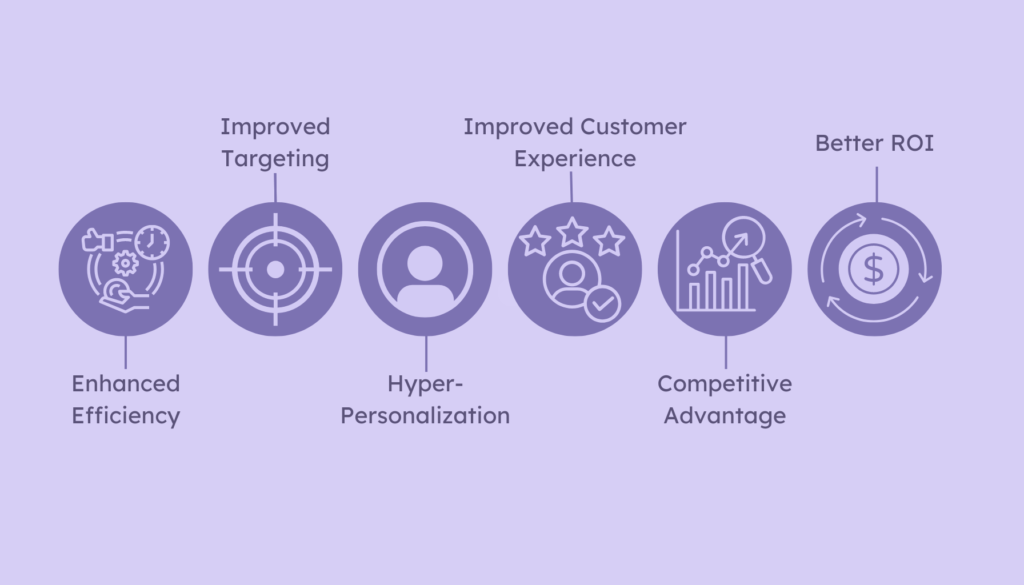
Marketers and Artificial Intelligence: A Love-Hate Relationship
As with many of us today we’re trying to find the balance between embracing AI and maintaining the human connection and touch. So while AI marketing has many benefits, some marketers may be hesitant to adopt this technology due to fears of job loss and control.
One of the biggest concerns among marketers is that AI will replace human jobs. While it is true that AI can automate certain tasks, such as data analysis and customer segmentation, it is important to remember that AI is not a substitute for human creativity and strategic thinking. Rather, it is a tool that can help marketers to make more informed decisions and free up time to focus on higher-level initiatives. In fact, a recent study by McKinsey found that while AI may automate 20-25% of marketing tasks, it will also create new jobs and opportunities for marketers.
Some marketers understandably even feel that AI will take over and make decisions without human input. However, this is not the case. AI algorithms are only as good as the data they are fed, and they require human oversight to ensure that they are making the right decisions. Additionally, marketers can set parameters and guidelines for their AI systems to ensure that they align with their business goals and values.
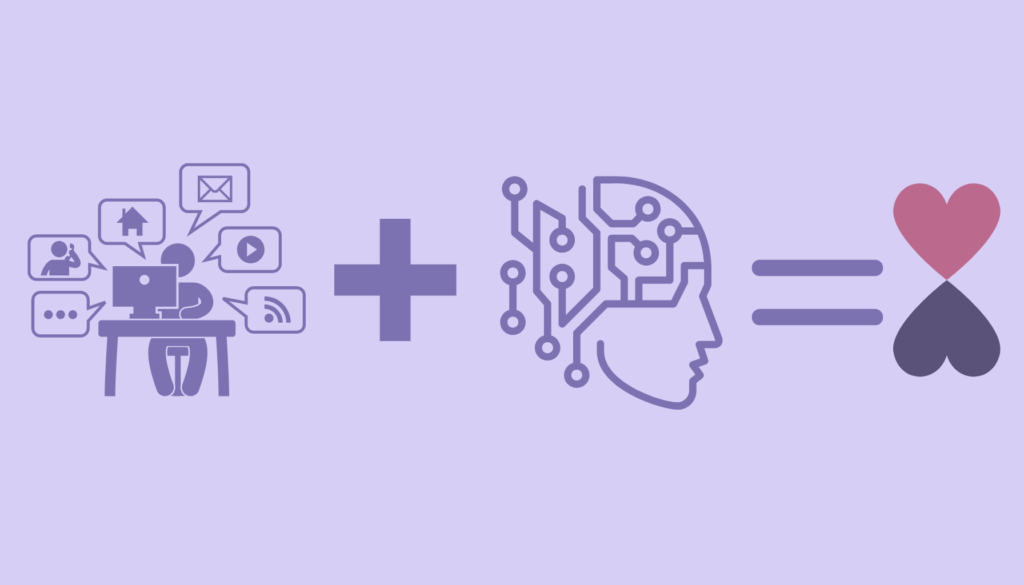
So what can marketers do to ride the AI marketing wave and leverage both the power of AI and their own skills and expertise?
The first step is to educate themselves about the benefits and limitations of AI marketing. Marketers should learn about the different types of AI technologies available and how they can be applied to their marketing strategy.
The second step is to start small and experiment with AI technologies. Identify specific areas of their marketing strategy where AI can be applied and test out different AI tools and algorithms. By starting small, professionals can learn from their successes and failures and gradually build up their AI capabilities over time.
And -this one might be hard to digest- marketers should remember that if they don’t use AI, someone else will. In today’s competitive landscape, it is essential to leverage the latest technologies and trends in order to stay ahead of the competition. When it comes to digital marketing, hopping on the AI bandwagon can be a total game-changer for marketers. It means staying ahead of the pack, becoming a productivity ninja, and giving your customers the kind of experiences that will have them swooning with delight.
Conclusion
AI marketing has the potential to transform the way marketers approach their work, with benefits including increased efficiency, more effective campaigns, and better customer experiences. As more companies adopt AI, it will likely become a key tool in the marketer’s toolkit, so it’s important for marketers to embrace this technology and learn how to use it effectively.
Increase +180%
leads
demos
sales
bookings
from your website with AI
Get more results from your existing website traffic delivering personalized experiences at every stage of your customer journey.



